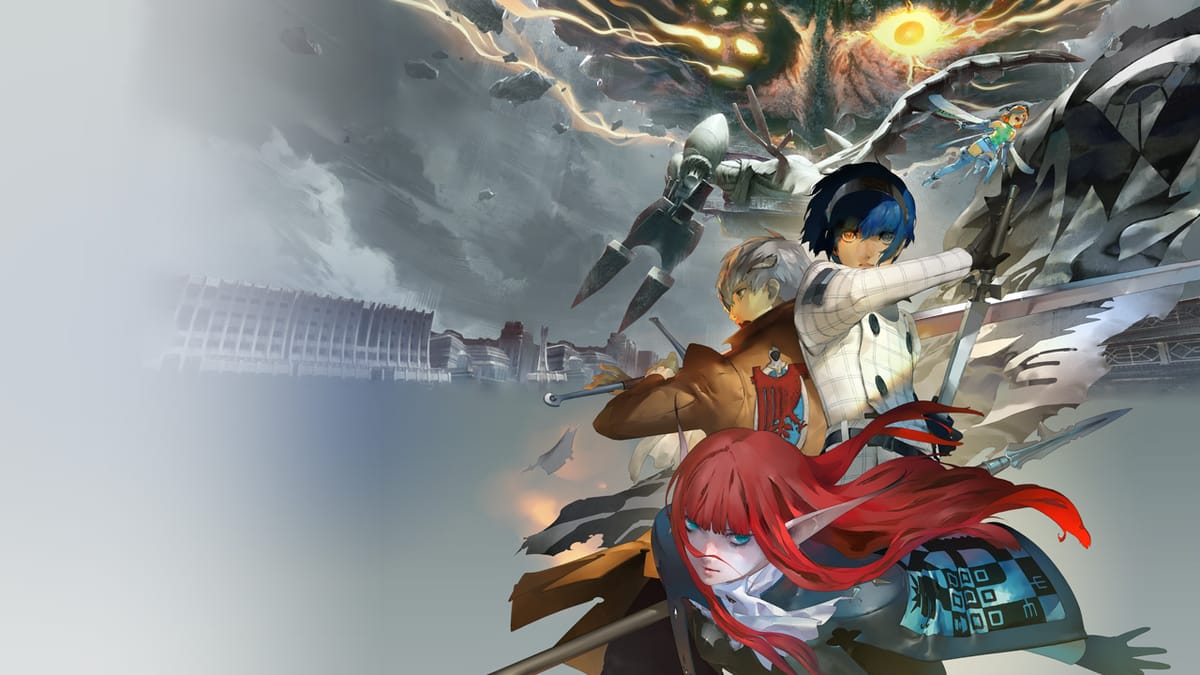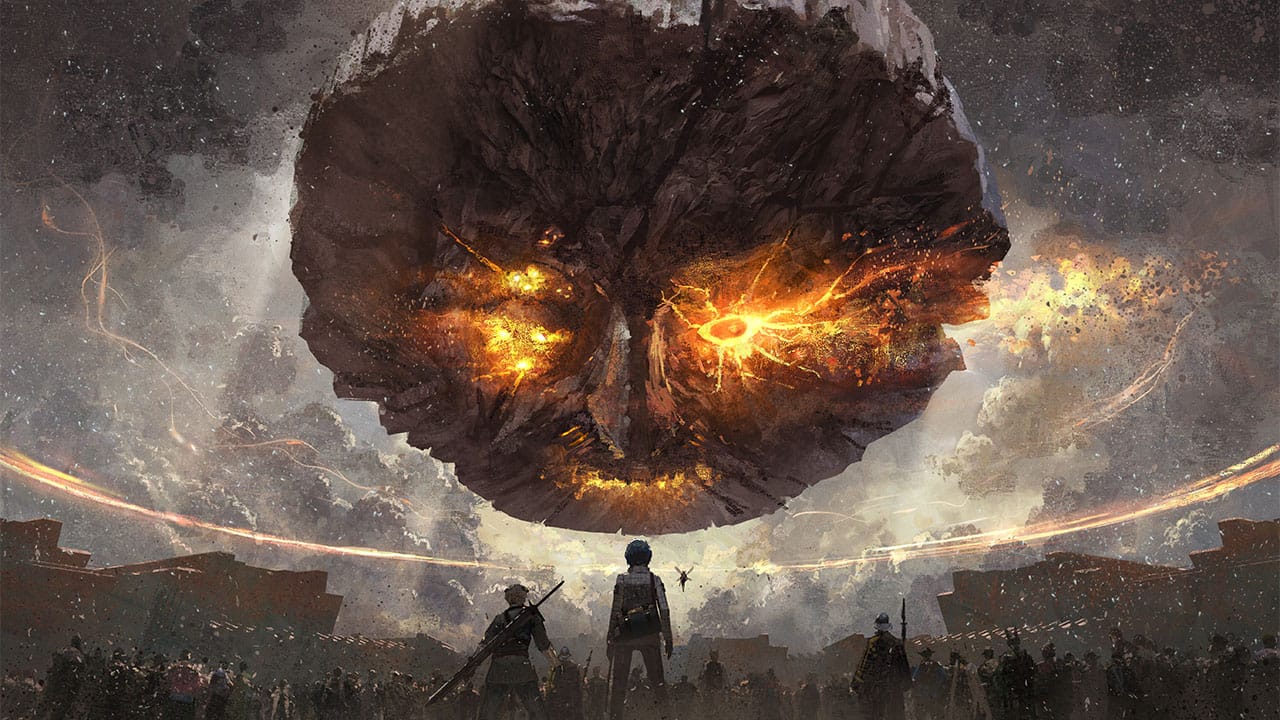A Metaphorical Fantasy For An Uncomfortable Reality
Metaphor ReFantazio hit uncomfortably close to home many times during my playthrough of it - but its stark, eerily similar-to-our-own-society fantasy kept me hooked.

These days, with how tight my schedule is (that damned adulting, always catching up to you), it's pretty rare that a game tends to consume a ton of my time all at once. Generally, I can expect to game here and there for an hour or two, and take my time. This works out great with JRPGs, my preferred game genre, because they're often an average of 60-80 hours, meaning that a single game can feasibly command my attention for a couple months.
Every so often, though, comes a game that is so engrossing that I have to keep playing to see what comes next, one that re-arranges non-critical things I need to do in my life to squeeze more time out.

You can probably guess which bucket Metaphor: ReFantazio falls into.
I've been drifting towards Atlus and Falcom for a while now when it came to the turn-based JRPG itch that I occasionally need to scratch. While Square will always have part of my gaming heart (if for nothing else, that I am still enjoying casually rolling through FFXIV), the recent Final Fantasies in the mainline series have moved away from the expansive cast of characters and battle systems that dictated many of their earlier entries. So when games like Persona 3 Reload and the Trails series give me what I want, it's no surprise I'll turn to the companies that make them for more.

But that's not entirely why Metaphor ReFantazio has took away my time. It's intrigued and captured me because of the single idea that it makes me distinctly uncomfortable.
One of the tropes of the JRPG genre is that you essentially are a chosen hero, perhaps starting out with humble origins but eventually becoming universally beloved and hailed as the champion of all those in the world, fighting against a generally-agreed-upon evil force. Metaphor ReFantazio, however, turns that on its head. You're a member of the elda, a seemingly minor tribe among the many in the game, and prejudiced against simply for how you look, the fact that you don't possess a distinct feature (unlike the Clemar's horns, or the Roussaint's ears), and that your tribe is not high in the hierarchy of Metaphor's society. Even among the "lower" tribes, such as the downtrodden Paripus or the supposedly pagan Mustari, you're seen as an "other", viewed with skepticism and unfair distrust.
Sound a little too close to the issues of the day in the real world? Well, that's just scratching the surface.

Along with the multi-cultural tensions comes a layer of politics and societal jockeying. You see, the king of the land, an idealist named Hythlodaeus who made a good faith attempt to create a true "utopia" of cultural equality among the various tribes of the world, just got murdered. As the omniscient player, we know who did the deed - a ruthless, yet publicly-respected agitator named Louis Guiabern, who has taken it upon himself to upend the attempted ordered, flawed society Hythlodaeus set up. The ruling Sanctist church is corrupt, Louis says, and the mistakes he claims the king made have created a rotten societal ladder that needs to be destroyed.
Only the dead king's post-mortem magic stops Louis' complete takeover, in favor of an enforced battle for political succession to the throne. The person who garners the most support from the people, says the king from beyond the grave, will be the one who would be the new ruler. This kicks off the main plot of the game, as you (along with your growing, multi-tribe cast of misfits), Louis, and a slew of other candidates slug it out without being able to murder one another for the love and support of the people who will decide who wins election-by-magic.

Politics? Religion? Sociocultural tensions? And on top of that, the idea that the most hideous monsters traveling the land were feared and named "humans"? That's not just on the nose, that's just plain holding the mirror right up to it. And I loved every minute of it. I couldn't get enough.
Before it gets brought up, there is that small, loud minority of gamers that don't seem to like these real things being in games meant to be entertainment. To that, I have to say first that everyone else (a million or more in just the first week) thinks that's crazy talk, and that second, politics and cultural commentary and issues have been around in games since Civilization was first kicking up dust in the early 90's. It's always been here, and it's here to stay.

But for those of you intrigued, back to the discomfort of Metaphor. Aside from being treated to scads of societal inequality, casual racism, and normalized religious zealotry, the game constantly asks you whether or not these things can be eliminated or banished, and if aspiring to that is just Quixotal fantasy . A utopian ideal, outlined in a book the protagonist carries around with him for most of the story, is the guiding light for him and his party, and make no mistake - the game tries really hard to tell you to question that high ideal.
As a result, not everything happily goes the way of you and your friends immediately like in most JRPGs. You lose one party member early to a failed assassination attempt, almost kill off an innocent person accused of childnapping, get manipulated and used into furthering Louis' own plans when you think you're outfoxing him, and more. Your followers, the bond connections the game insists you should build up, consist of people like a cynical magical item seller who almost commits genocide, a trickster who ends up inadvertently killing his own mother, and a well-meaning town official who almost becomes a paranoid despot. It's not a fun world out there, and the game is quick to remind you that despite the genre it comes from that you are not going to just magically fix everyone's problems, kill a god, and end the game - at least not right away.

But that's what made Metaphor ReFantazio's journey so interesting, and so hard to put down. It was never easy, always a struggle, and very difficult to watch or play through at times. And despite the game's many tragedies, some of which you are powerless to stop even with your Archetypal otherworldly powers, the hardships of that journey and having to stick to ideals despite a world of cynical, brutal "reality" make the final victories all the more sweeter. I'd be spoiling things worse than I already have if I talked about it more, but I will say that the game's discomfort eventually fades, and you do end up doing the JRPG thing and winning out in the end. But it's not perfect, nor is it ever shown as over. I can respect a game like Metaphor ReFantazio for that, because it realizes that fantasy and utopia are one thing, but reality and achieving ideals, or anything close to them, are another and take a lot of work. But as long as people hope, toil, and are open to listening and being kind to one another, anything is possible. It's a sobering, yet cautiously optimistic view of the world and the problems it has - and it's one I was happy to carry to the end and think about long after the end credits ran.
I'll take plenty of discomfort for a game that makes me think beyond its borders anytime.
Affiliate Stuff
(For transparency: I receive a cut of all purchases through these links and partnerships I’m a part of - feel free to check them out!)




